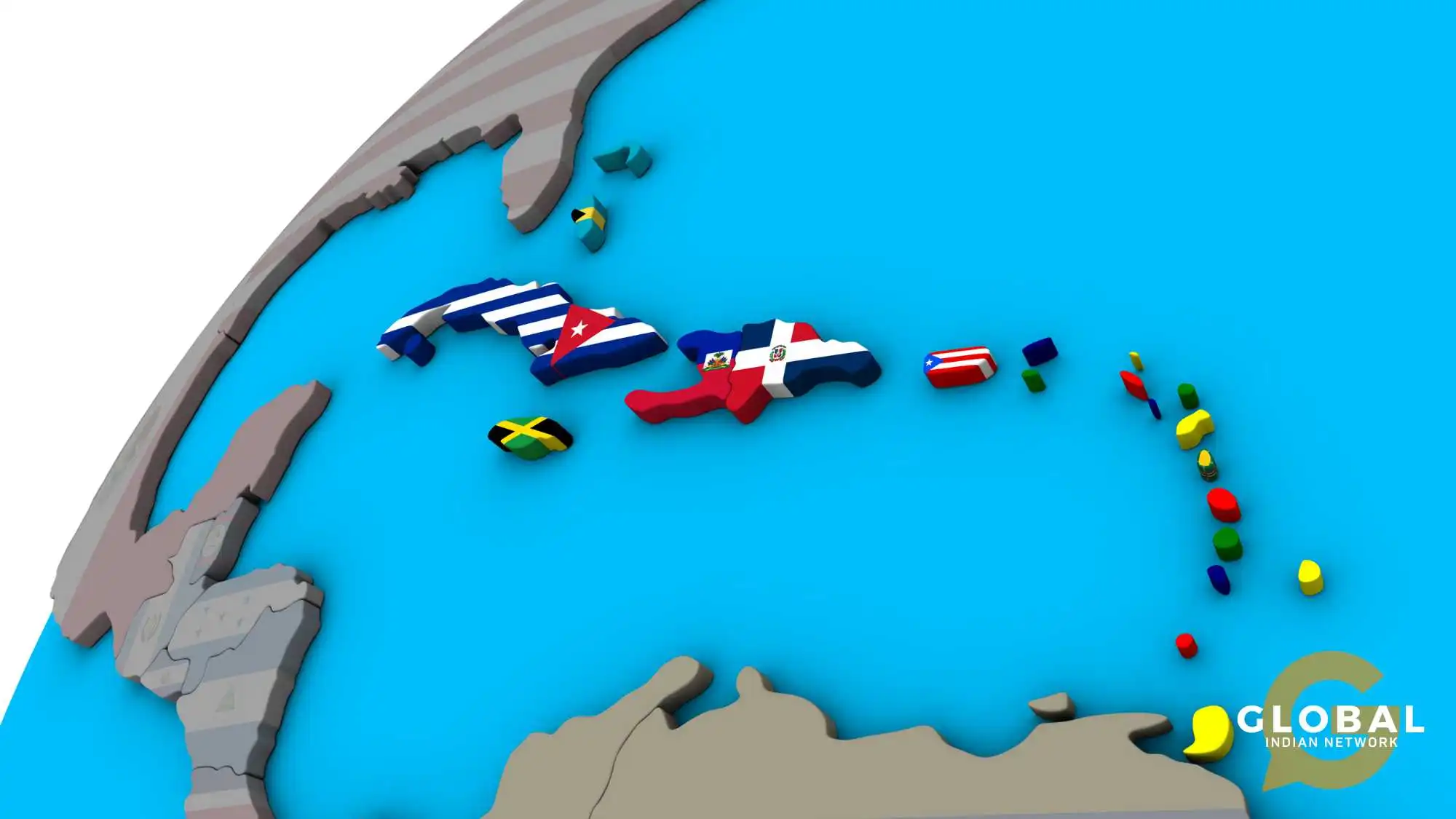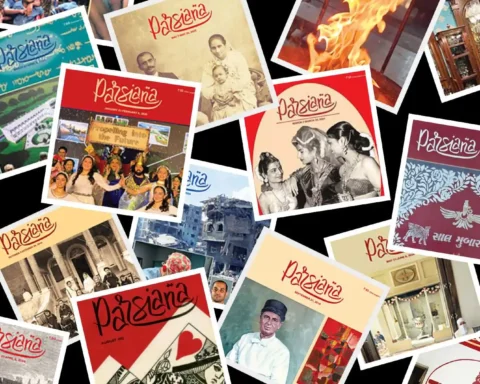Today, English is an official language in many Caribbean countries. However, this was not always the case. The Anglophone Caribbean stands as a unique blend of cultures that stems from diverse histories, identities, and linguistic influences. Spanning various Caribbean territories where the English language serves as an official language, this region reflects the dynamic influence of African, Asian, European, and indigenous cultures. This blog explores the vibrant culture behind today’s English in the Caribbean and highlights how the slave trade and language contact have shaped the identity of the Anglophone Caribbean.
Table of Contents
The Roots of Anglophone Caribbean Identity
The roots of the Anglophone Caribbean can be traced all the way back to the 17th century. This period was marked by the colonization of Caribbean islands by European powers, following their imperial efforts in many African nations. While the Spanish Empire was already established in the area, their weakening led to the British, Dutch and French gaining control over the area. British influence was particularly dominant, establishing colonial languages like English as the administrative and educational standard. Under the rule of the Europeans, the island nations in the area, such as Jamaica, Barbados, and Trinidad & Tobago, became pillars in transatlantic trade, particularly to meet the labour demands of enslaved Africans.
Through this route, the Creolized versions of European languages were also brought to the Caribbean, English being a prominent one. These creolized languages from Africa led to the creation of Caribbean creoles in the region, particularly French, Dutch and English. These evolved from the necessity of actual communication language choices among enslaved peoples and their colonizers. The enslaved people had to adopt English as a means to communicate with the British, thus leading to the creation of simplified English.
When slavery was formally abolished in the 19th century, many countries in the Caribbean decided to keep English as their official language. Contrastingly, in the mid-20th century, there was also a bout of emigration of Anglo-Caribbean people to the UK during the World Wars. This has led to the formation of the British African-Caribbean community in the UK, which has left an infallible mark on the culture and language.

Language and Identity in the Anglophone Caribbean
The English language remains central to the Anglophone Caribbean identity. While standard English is widely used in formal contexts such as governance and formal education, Caribbean English and Caribbean Creoles are used in informal situations. For example, in Saint Lucia, Saint Lucian Creole, a language with roots in African and French-speaking island traditions, coexists alongside English, which shows the region’s complex linguistic heritage. The distinction between Standard English and Creole is particularly evident in English-medium education, where the use of Creole is often discouraged. However, in recent decades, there has been a growing movement to celebrate and integrate Creole into formal education, recognizing its importance as a marker of identity and cultural pride.
Currently, English is one of the many official Caribbean languages in the region. English is the official language of twelve Caribbean countries – Antigua and Barbuda, Bahamas, Barbados, Belize, Dominica, Grenada, Guyana, Jamaica, Saint Kitts and Nevis, Saint Lucia, Saint Vincent and the Grenadines, Trinidad and Tobago. The Anglophone Caribbean has over six million people, the majority of whom speak English, either through a Creole or the Standard British version. While there have been efforts to push for a single ‘Caribbean English’, there has been no widespread acceptance. This is due to each variant having key differences, highlighting the diversity of the Caribbean.
The Impact of Colonization on Language and Culture
The colonial era most definitely left an indelible mark on the Anglophone Caribbean. The term in itself came about to describe Caribbean nations that were under the rule of the British or spoke imperial English. The impact is not only visible in the political structures of the region but also in its linguistic heritage. English has become the primary language of administration, trade, and religion, which may often sideline indigenous languages. However, through processes of language contact, the region developed unique forms of English influenced by African languages, Asian languages, and indigenous Caribbean vocabularies.
In territories like the British Virgin Islands and Saint Kitts and Nevis, the continued use of English-based Creole languages highlights the adaptability of the region’s linguistic traditions. These Creoles, while distinct from Standard British English, are deeply rooted in the shared histories of the Caribbean’s diverse peoples.
However, the lingering effects of colonial education continue to be seen. This influences attitudes toward language. In many Caribbean English-speaking countries, Standard British English remains the preferred choice in formal contexts that may enforce a hierarchy that places Creole languages in a secondary and inferior role.
Today, English remains the administrative language in most Caribbean territories. However, while administrative English is considered the Standard British version, the everyday use of Creole and other contact languages reflects the resilience of indigenous traditions.
In countries like Saint Lucia, there have been efforts to preserve and promote Saint Lucian Creole, and these efforts in other nations highlight the need to repurpose the oppressor’s tool as one that can benefit instead. The global recognition of Caribbean English shows the elevated impact of the intermingling of cultures on the world stage. This not only highlights how the English language has allowed the Caribbean nations to globalize but also puts emphasis on how the addition of Caribbean culture has enriched the language.
Independence and the Rise of Cultural Pride
The mid-20th century brought independence to many Caribbean nations, which led to an increased focus on their cultural identity and heritage. Countries such as Jamaica and Trinidad & Tobago emerged as leaders in the celebration of Caribbean terms and traditions, embracing their African and indigenous roots while also reclaiming the role of English in their lives. This can be seen in the popularity of reggae and calypso music, which has lyrics that are often sung in Creole or Caribbean English, highlighting the region’s creativity when it comes to language.
The Anglophone Caribbean also showcases remarkable linguistic diversity when it comes to differing from one another. From the Bay Islands of Honduras to the Corn Islands of Nicaragua, even within predominantly English-speaking areas, there are pockets of cultural and linguistic variation. These variations differ from the Creoles or versions spoken in other parts of the Caribbean, and they highlight the distinct cultures that have emerged in various places in the Caribbean.
Conclusion
In conclusion, the Anglophone Caribbean is a unique blend of cultures that has been shaped by colonization, the slave trade, and the resilience of its people. Despite English serving as the official language in many Caribbean nations as a reminder of its history, many Creole languages and traditions continue to thrive in people’s lives, creating a region that enriches language and culture on a global level. The duality between its colonial past reflects the region’s history and cultural pride, with the Anglophone Caribbean serving as an inspiration to the world.

FAQ
What are the Anglophone Caribbean Nations?
The Anglophone Caribbean includes Jamaica, Bermuda, St. Vincent and the Grenadines, The Bahamas, Antigua and Barbuda, Montserrat, The Cayman Islands, Dominica, Trinidad and Tobago, Turks and Caicos, St. Kitts and Nevis, Guyana, St. Lucia, Belize, Anguilla, Barbados and the British Virgin Islands.









